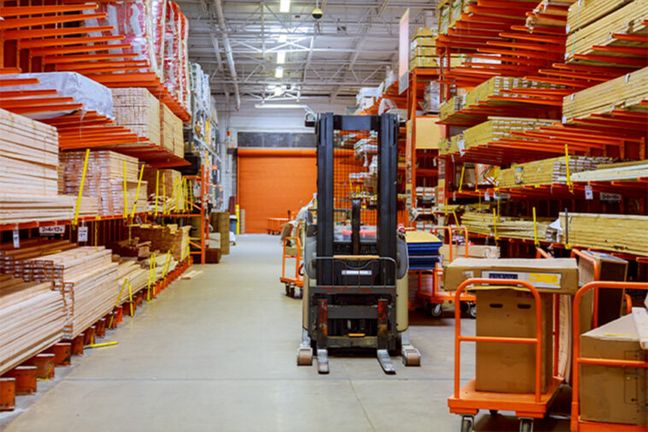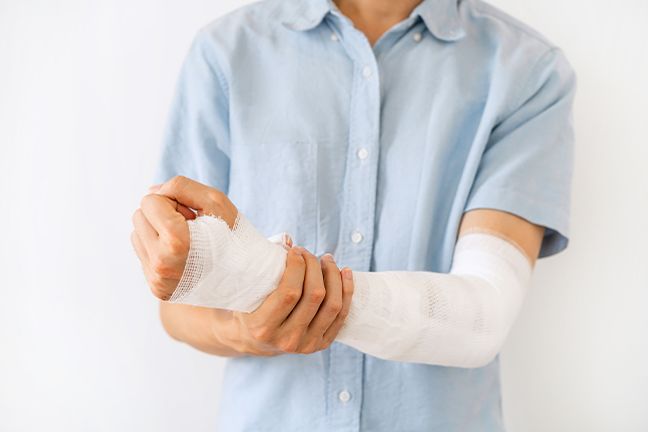Introduction
In New Jersey, a plaintiff is required to present evidence establishing the standard of care in negligence cases where the subject matter is so esoteric that jurors of common judgment and experience cannot form a valid judgment as to whether the conduct of the defendant was reasonable. Under this scenario, summary judgment is appropriate where a plaintiff fails to present expert testimony establishing the standard of care.
However, the practice of challenging plaintiffs who fail to present expert testimony in negligence cases is being underutilized by the defense bar, as New Jersey courts in recent years have been willing to extend the limits of the requirement to less complicated subjects. For example, in July of this year, the New Jersey Appellate Division in Leon v. Tool & Truck Rental at Home Depot ruled that a plaintiff was required to present expert testimony to establish the standard of care owed by Home Depot related to allegations that it failed to properly maintain and inspect a truck ramp rented to the plaintiff used to move furniture.
Facts of the Case
In September of 2018, the plaintiff, Pierre Leon, went to the defendant Home Depot’s store in Clifton, New Jersey to rent a truck to transport a cabinet from the place he had purchased the cabinet to his apartment. A Home Depot employee allegedly told the plaintiff he needed a truck with a ramp, provided the plaintiff with a pair of “load-and-go ramps,” and instructed the plaintiff on how to put the ramps on the back of the truck in order to load and unload the cabinet from the truck. The plaintiff drove the truck to the store where he had purchased the cabinet. An employee at that store placed the cabinet in the back of the truck. The plaintiff drove to his home where he parked the truck and opened the back.[i]
As described by the plaintiff, he unfolded the ramps and placed them on the truck, following the instructions allegedly given to him by the Home Depot employee. The plaintiff tested the stability of each ramp by walking up them. According to the plaintiff, as he went “back down” the ramp, it “started to move” and “slipped from underneath him,” causing his left leg to hit the ground and him to fall backwards.[ii] After spending some time on the ground, the plaintiff got up and slid the cabinet off the truck, onto a dolly, and rolled the cabinet into his apartment. The plaintiff placed the ramps back in the truck and returned the truck and the ramps to the Home Depot store. Allegedly, at that time, a Home Depot employee told the plaintiff those particular ramps were not “meant for” that truck and remarked that using those ramps with that truck was “pretty dangerous.”[iii]
Legal Ruling
Sometime later, the plaintiff began complaining of pain from the alleged ramp incident and brought a personal injury lawsuit against Home Depot. The complaint contained two causes of action: a design defect claim, and a separate negligence claim that Home Depot had failed to properly “supervise,” “maintain,” and “inspect” the ramp and otherwise failed to “exercise the degree of care required” for the ramp.[iv] The case ultimately proceeded to trial before a jury. After the plaintiff rested his case, Home Depot moved for a directed verdict on both causes of action. The trial court granted the motion, and the plaintiff appealed.
In granting Home Depot’s motion for directed verdict, the trial court found the plaintiff had failed to present any evidence establishing that either the ramps or the truck had been defectively designed. The trial court also found the plaintiff failed to present any evidence establishing the standard of care for the maintenance, service, inspection, and care of the ramps. On appeal, the plaintiff argued that a plaintiff is not always required to present expert testimony to establish the duty of care by a putative negligent tortfeasor and that the trial court erroneously dismissed the negligence claim based on the lack of a liability expert at trial. He contended the jury’s common knowledge allowed it to properly decide whether Home Depot breached a duty of care without the need for expert testimony and that the court erred by concluding otherwise.
In New Jersey, a plaintiff is not required to present evidence establishing the standard of care in all negligence cases.[v] However, where “the matter to be dealt with is so esoteric that jurors of common judgment and experience cannot form a valid judgment as to whether the conduct of the [defendant] was reasonable,”[vi] a “jury ‘would have to speculate without the aid of expert testimony.’”[vii] Thus, in those circumstances where “the ‘jury is not competent to supply the standard by which to measure the defendant’s conduct,’” the plaintiff is required to “‘establish the requisite standard of care and [the defendant’s] deviation from that standard’ by ‘present[ing] reliable expert testimony on the subject.’”[viii] When a plaintiff fails produce an expert report to support a claim requiring expert testimony, the defendant is entitled to summary judgment.[ix]
The plaintiff argued his negligence claim did not require expert testimony because “[i]t is common knowledge that a business owner should ensure that equipment being rented to customers is proper and fitting for its intended purpose—and that parts and pieces fit together.”[x] He similarly claimed it is common knowledge that it is negligent to rent ramps to a customer for a truck “that does not actually fit or go with it.”[xi]
However, the Appellate Division found the plaintiff’s arguments ignored the context within which the trial court made its determination that the plaintiff was required to present expert testimony to establish the standard of care. The trial court considered the specific bases for the negligence claim as alleged in the complaint—specifically, that Home Depot negligently maintained, serviced, inspected, and cared for the ramps and truck. Based on those claims, the trial court correctly determined expert testimony was required to establish the appropriate standard of care for the ramps and truck based on its determination it was beyond the common knowledge of a jury to discern requirements for the maintenance, inspection, service, and care for the ramps and truck.[xii]
Takeaway
The practice of challenging plaintiffs who fail to present expert testimony in negligence cases is being underutilized by the defense bar. The case can be made that plaintiffs require expert testimony in nearly any liability case, and summary judgment should always be pursued in those cases.
Consider, as an example, that instead of falling on the truck ramp, Mr. Leon slipped on ice in the Home Depot parking lot. He sues the property owner, which delegates some duties for maintaining the parking lot to the tenant, Home Depot. Home Depot in turn contracts with a maintenance company pursuant to a services agreement, which delegates some of those responsibilities to the contractor. That contractor in turn hires a snow company to keep the parking lot clear of snow and ice, pursuant to a subcontract which further delegates responsibilities to the subcontractor.
Many plaintiffs in New Jersey fail to present any liability expert testimony in common situations like this and would argue that such “run of the mill” slip and fall cases do not require expert testimony.
However, it can be argued that most jurors have no knowledge and experience with large-scale commercial property maintenance and commercial contracts and cannot form a valid judgment as to, based on these complicated contracts, what party owed what duty under the circumstances. Understanding the standard of care also requires an application of municipal ordinances and professional calculations of the weather conditions leading up to the incident. Without expert testimony, the plaintiff can do nothing more than give their own personal opinion as to the standard of care, which is impermissible.
Keep Reading
More by this author
Sources
[1] Leon v. Tool & Truck Rental at the Home Depot, No. A-3032-21, 2024 WL 3507455, at *2 (N.J. Super. Ct. App. Div. July 23, 2024)
[1] Ibid. at *3
[1] Ibid. at *3
[1] Ibid. at *1
[1] Davis v. Brickman Landscaping, Ltd., 219 N.J. 395, 406 (2014) (citing Sanzari v. Rosenfeld, 34 N.J. 128, 134 (1961))
[1] Ibid. (alteration in original) (quoting Butler v. Acme Mkts., Inc., 89 N.J. 270, 283 (1982))
[1] Ibid. (quoting Torres v. Schripps, Inc., 342 N.J. Super. 419, 430 (App. Div. 2001))
[1] Ibid. (alterations in original) (citations omitted); see also N.J.R.E. 702
[1] Tynes v. St. Peter’s University Medical Center, 408 N.J. Super. 159, 176 (App. Div. 2009)
[1] Leon, No. A-3032-21, 2024 WL 3507455, at *7
[1] Ibid.
[1] Ibid.


 Author: Keith Bostwick
Author: Keith Bostwick
 Editor: Grace Shuman
Editor: Grace Shuman
 Audish v. Macias Builds Upon the Foundation Started in Howell v. Hamilton Meats & Provision, Inc. By Affirming the Admissibility of Medicare...
Audish v. Macias Builds Upon the Foundation Started in Howell v. Hamilton Meats & Provision, Inc. By Affirming the Admissibility of Medicare...
 My New Year’s Resolutions at Work
My New Year’s Resolutions at Work
 Barking Up the Wrong Policy
Barking Up the Wrong Policy
 California Civil Procedure Code Section 998 – a Means to An End
California Civil Procedure Code Section 998 – a Means to An End
 May or Must: California and the Ninth Circuit Applies Grammar Rules for FMLA
May or Must: California and the Ninth Circuit Applies Grammar Rules for FMLA
 Par For the Course
Par For the Course
 Shining Light on Phantom Medical Bills–Lessons from Washington on Using Federal Hospital Price Transparency Rules to...
Shining Light on Phantom Medical Bills–Lessons from Washington on Using Federal Hospital Price Transparency Rules to...
 When Roads Diverge in the Wood: the Power of Risk in Building a Fulfilling Career and Stopping Nuclear Verdicts®
When Roads Diverge in the Wood: the Power of Risk in Building a Fulfilling Career and Stopping Nuclear Verdicts®
 Ask Atty: Scott Ruksakiati
Ask Atty: Scott Ruksakiati
 Remembering the Fundamentals: Personal Jurisdiction as an Escape Hatch
Remembering the Fundamentals: Personal Jurisdiction as an Escape Hatch
 New Jersey Supreme Court Rules Against Casino in COVID-19 Coverage Fight
New Jersey Supreme Court Rules Against Casino in COVID-19 Coverage Fight
 Victim of Financial Mismanagement or Unlawful Retaliation? New Jersey City University Program Founder Claims School Retaliated After Reporting Alleged Sexual Harassment
Victim of Financial Mismanagement or Unlawful Retaliation? New Jersey City University Program Founder Claims School Retaliated After Reporting Alleged Sexual Harassment
 New Jersey Nightclub Cleared from College Teen’s Fatal Accident
New Jersey Nightclub Cleared from College Teen’s Fatal Accident
 New Jersey Supreme Court Takes Up Casino’s COVID-19 Coverage Fight
New Jersey Supreme Court Takes Up Casino’s COVID-19 Coverage Fight